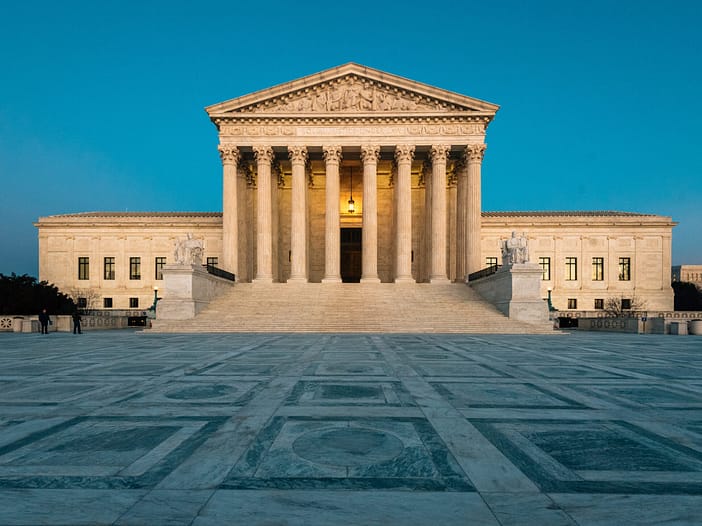
Personal jurisdiction is one of the most critical concepts in civil procedure, determining whether a court has the authority to hear a case involving a particular defendant. This is the doctrine that I have spent my first four weeks of law school in Civil Procedure focused on. I think its implications are not only pivotal to establishing the procedures of our legal system, but hold great weight in determining the future of sentencing. The concept of personal jurisdiction hinges on the due process clause of the U.S. Constitution. Over time, the U.S. Supreme Court has refined the personal jurisdiction doctrine, from Pennoyer v. Neff to International Shoe Co. v. Washington, and more today.
There are so many layers to personal jurisdiction that I could not begin to unpack them in one blog, but what I think is key for us to be thinking of is how this is evolving. The Supreme Court is at a crossroads with personal jurisdiction and has been unable to fully agree on its application for many years. The legal landscape is evolving, and global commerce is intensifying, and it seems the court may be on the verge of returning to the Pennoyer framework. What does this mean for fairness in the legal system?

Case Law:
The Pennoyer v. Neff case, decided in 1878, established the first significant test for personal jurisdiction in the United States. In Pennoyer, the Court adopted a strict rule: Individuals are not subject to jurisdiction in a state if they are not present in said state, voluntarily appear in court, and are properly notified of proceedings, or based on property ownership alone, under the due process clause of the Constitution.
At the time, this narrow approach made sense. The United States was still a young country with limited transportation infrastructure. Pennoyer’s doctrine is about protecting a person’s fundamental right not to be hauled into court without reasonable notice and connection to the forum. Fast forward to 1945, and the Court’s decision in International Shoe Co. v. Washington marked a major shift in how personal jurisdiction is analyzed. Under International Shoe, the Court ruled that personal jurisdiction over a non-resident defendant is constitutionally permissible as long as the defendant has minimum contacts that comport with ‘traditional notions of fair play and substantial justice’.
This test was revolutionary because it recognized a nationwide and global stream of commerce. In essence, the Court began looking at the nature and extent of the defendant’s connection to the forum state. This test can be somewhat confusing, as there is truly no rigid line. A defendant who purposefully avails themselves of the privilege of conducting activities in the forum state could reasonably expect to be subject to its jurisdiction. This flexibility allowed the law to evolve with the times, and it is still incredibly important today.
Today?
While International Shoe and its progeny have been adaptable and dynamic, there has increasingly been a fear that the U.S. Supreme Court is signaling that it may be heading back to Pennoyer. What does this mean for justice in the legal system? Some feel that this would unfairly harm plaintiffs, as it would essentially force plaintiffs to file suit in distant jurisdictions, access to justice becoming more difficult, particularly with multistate complex legal issues.
Second, this change can also affect criminal law, where questions of jurisdiction commonly intersect with issues of due process. Suppose the courts are forced to limit the scope of jurisdiction. In that case, it can lead to difficulties in criminal cases involving defendants not present in a forum state but who may still be meaningfully linked with the state by their actions or business operations.
For everyone in the U.S., the ongoing evolution of personal jurisdiction underscores the need to stay attuned to these changes. The future of personal jurisdiction doctrine could have lasting impacts on how and where cases are litigated, especially in an increasingly globalized world. It is always important to stay attuned to what the Supreme Court is doing, but I think it will be interesting to see how this particular topic evolves in the coming years. This is just one of the many fascinating things I am learning in Law School, and I can’t wait to share more!

